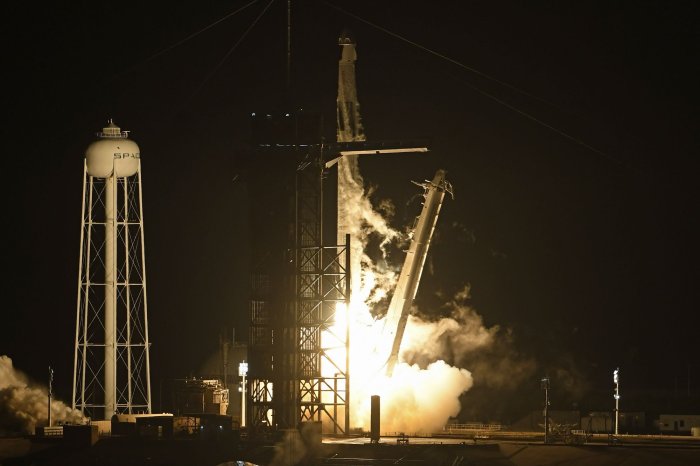The ministry also said that the "unconditional safety" of the ISS crew is the top priority
"The United States knows for certain that the resulting fragments did not represent and will not pose a threat to orbital stations, spacecraft and space activities in terms of test time and orbit parameters," Russia's defense ministry said in a statement.
![]()
Seven astronauts are on board the International Space Station, including four who arrived only last week. Photo courtesy of NASA
Russian officials said the test was done to strengthen defense capabilities.
The missile test, which was conducted Monday, destroyed the satellite and created more than 1,500 pieces of debris. U.S. officials are concerned that some of the fragments could hit the space station and endanger seven astronauts on board.
Russian officials also noted that similar tests have been done by the United States, China and India.
















